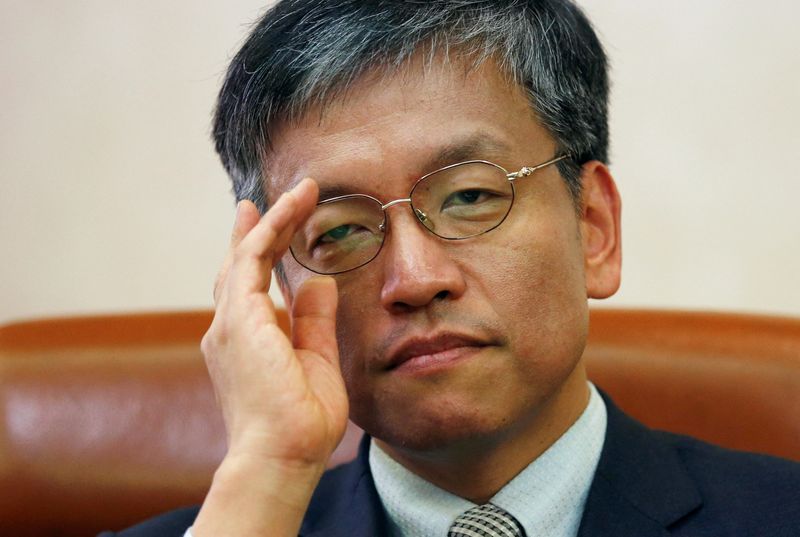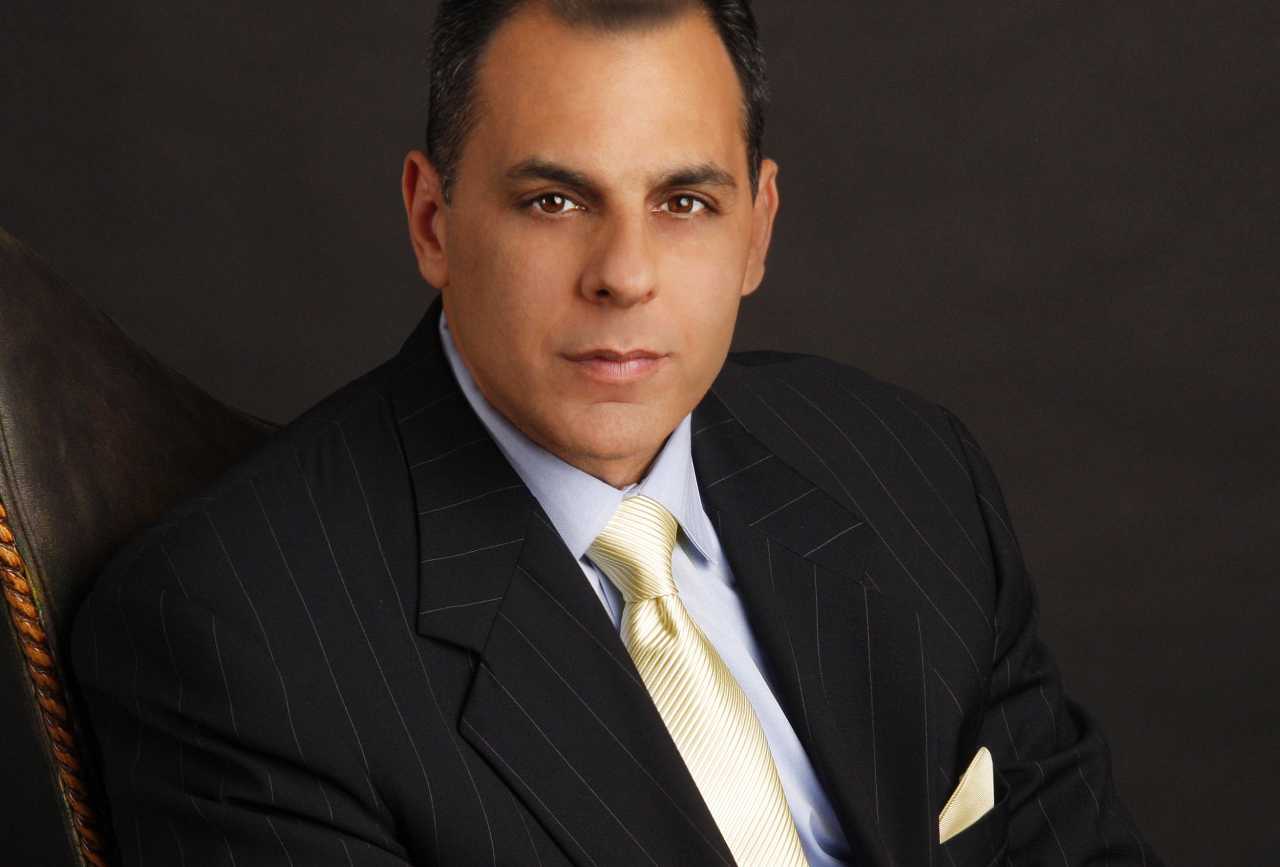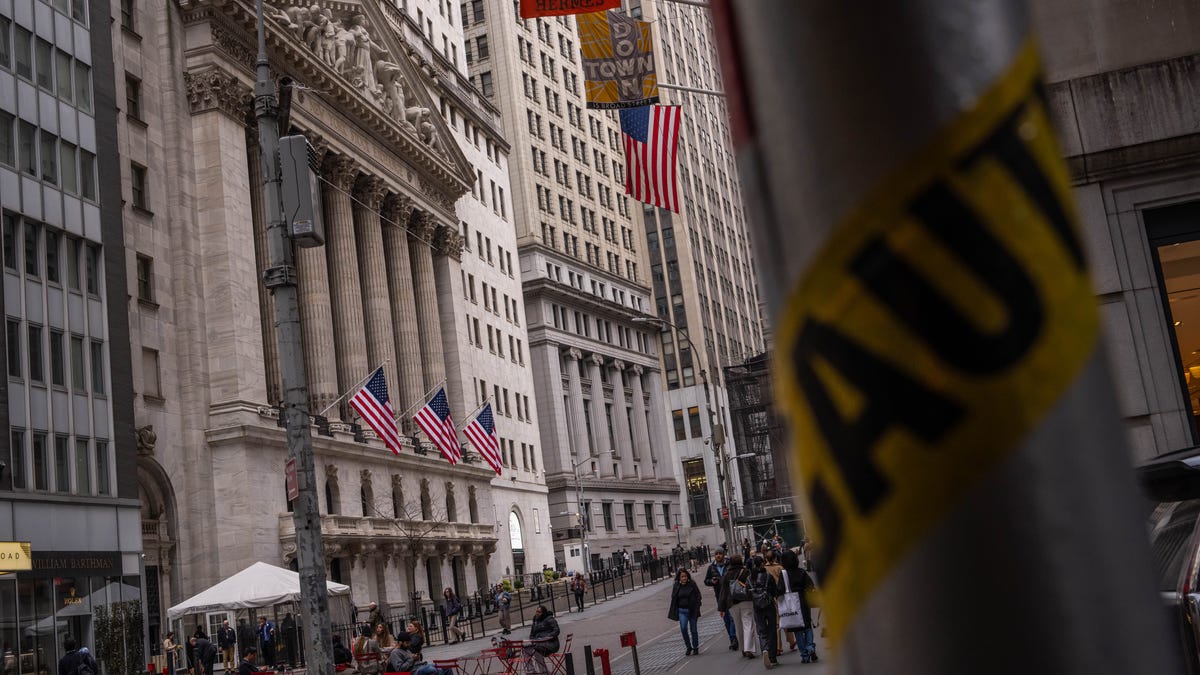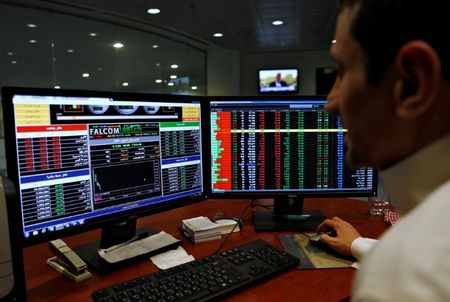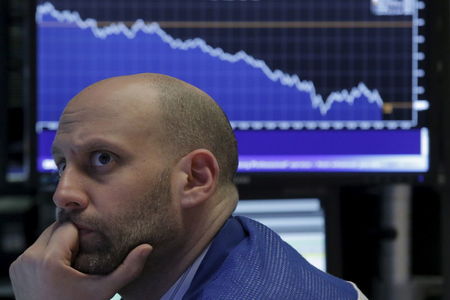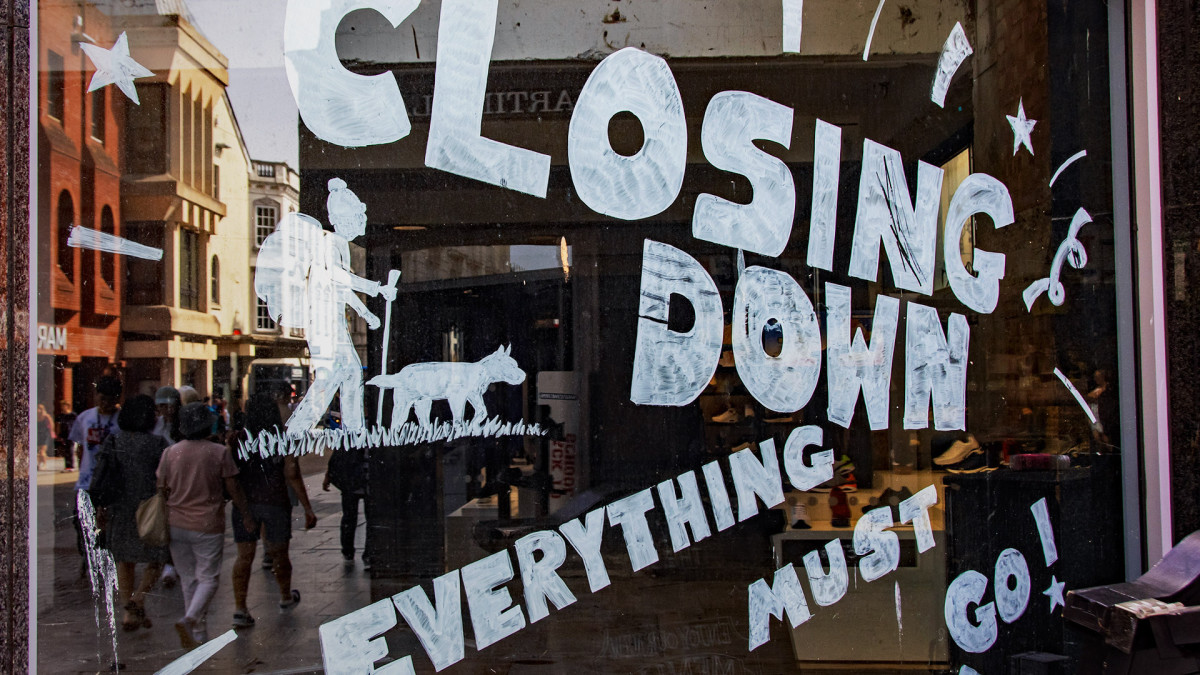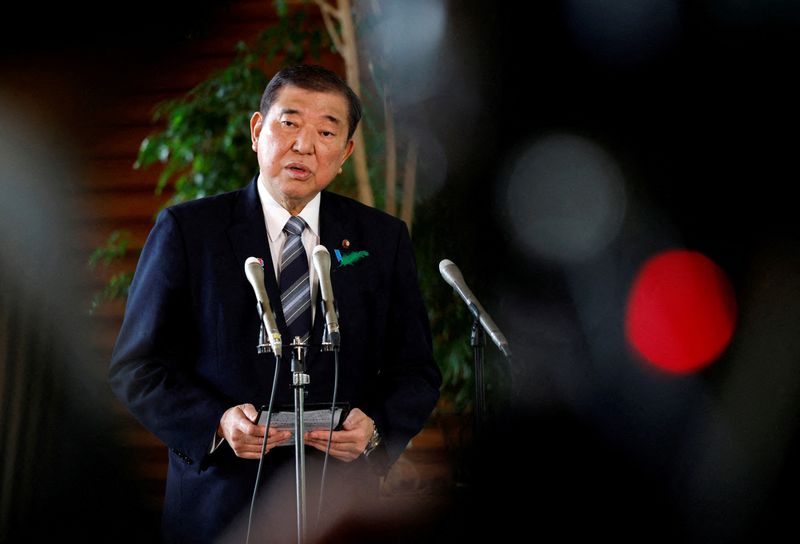Transcript: Christine Phillpotts, Ariel Investments
The transcript from this week’s, MiB: Christine Phillpotts, Ariel Investments, is below. You can stream and download our full conversation, including any podcast extras, on Apple Podcasts, Spotify, YouTube, and Bloomberg. All of our earlier podcasts on your favorite pod hosts can be found here. ~~~ This is Masters in business with Barry Riol… Read More The post Transcript: Christine Phillpotts, Ariel Investments appeared first on The Big Picture.

The transcript from this week’s, MiB: Christine Phillpotts, Ariel Investments, is below.
You can stream and download our full conversation, including any podcast extras, on Apple Podcasts, Spotify, YouTube, and Bloomberg. All of our earlier podcasts on your favorite pod hosts can be found here.
~~~
This is Masters in business with Barry Riol on Bloomberg Radio.
00:00:16 [Speaker Changed] This week on the podcast I have another extra special guest. Christine Philpots of Aerial Investments has specialized in emerging markets and frontier markets. For most of her career, she has been around the world and if you name a hotspot investing place, she’s been there. South America, Asia, Africa, Sub-Saharan Africa and Middle East, as well as Southeast Asia and Asia. She’s a boots on the ground type of investor who focuses and specializes in emerging market value. What makes that style of investing so interesting and different is simply market inefficiencies. You know, the US markets are so efficient, large cap tech stocks, it’s really hard to have an edge in that space. But when you look at emerging markets and when you look at value, the opportunity for alpha is much, much greater than it is in traditional large cap growth stocks in the US And a lot of managers in that space actually beat their benchmark. You can’t say the same for us large cap stocks. I thought this conversation was really informative and fascinating and I think you will also, with no further ado, aerial investments. Christine Philpots.
00:01:37 [Speaker Changed] Thank you for having me.
00:01:38 [Speaker Changed] So, so that’s a really fascinating background. I’m curious, I didn’t even talk about the grassroots business fund. We’ll get to where you work at JP Morgan, but economics bachelor’s from Columbia MBA from Harvard. Was finance and investing always part of the plan?
00:01:55 [Speaker Changed] The quick answer is no. So I pretty much tripped into finance when I was in middle school and high school. I wanted to be a concert pianist, so actually Oh really? Yeah. So I spent probably 90% of my time outside of school on the piano, practicing and playing at concerts. Wow. And essentially decided to pivot from that original plan because it became clear to me as I got older that to really make a living as a concert pianist, you need to be the top 1% in the world. Right. And I was good, but not
00:02:26 [Speaker Changed] That even that might not be, it might 0.1%.
00:02:28 [Speaker Changed] Point one. Exactly. Right. And so I was told that I was very good, but that’s a pretty high bar. So
00:02:34 [Speaker Changed] Do you still play?
00:02:36 [Speaker Changed] I don’t actually, but my kids are taking piano lessons, so I’m being inspired to kind of restart. So then I decided to explore other options, but finance was not one of them because I just had no exposure to finance whatsoever. And so the way I came across finance is when I was in high school, I was applying for scholarships for college and I came across the Thomas Rex Smart Start Scholarship program that was run by Chase Bank. So it’s a program that selects New York City high school students who are going to university in New York City and it offers a four year full tuition paid scholarship to college. Right. As well as a paid internship full-time during the summer, part-time during the school year. Wow. So I came across that opportunity, I applied and was lucky enough to get it, and then I said, okay, now I need to figure out what finance is actually all about. And luckily, as I, you know, started my internship when I was 18, over the years, you know, throughout college I learned more and more about the different areas of the bank and became really intrigued with investment management specifically. But if it was not for that program, I may not be in this industry.
00:03:43 [Speaker Changed] Huh. Really interesting. And, and I noticed in your background you spend some part of your undergraduate playing around in the psychology department. Yeah. Tell us a little bit about the thinking there. Yeah,
00:03:53 [Speaker Changed] That’s right. So I decided to become an economics major and a psychology minor. I always had this interest in just understanding how people think and what drives just people’s reactions, emotions, behaviors. That was just always a side interest of mine. And in particular as a psychology minor, I had an opportunity to work with a Columbia professor on an independent study, specifically focused on cognitive psychology. And I found that subsegment really interesting because we did studies on kind of decision making biases, human biases like loss aversion and other biases that impact otherwise what should be rational decisions and make them less than rational. And so doing that in college, that independent study really opened my mind of, to what eventually I learned to be the behavioral economics and finance area, but I didn’t even know what it was called or that that was an area back then. So the intersection of psychology and economics became really interesting.
00:04:53 [Speaker Changed] Very much so. The, the fascinating thing is when I was in college and even when I was in grad school, there really wasn’t any such thing as behavioral finance, but it was pretty clear. Economics had a fundamental flaw, like the base concept of humans as rational profit maximizing decision makers. Hey, that doesn’t seem to be what happens in the real world. Yeah. I think they’ve kind of squared that circle now. Absolutely. Do you get to use any of your, the work of behavioral economics in, in your day job?
00:05:23 [Speaker Changed] Absolutely. So as an investor we constantly to be, need to be aware of our own human biases ’cause we’re humans, so we are prone to the risk of making irrational decisions as well. But it’s also really interesting to think about how these biases at the market level really creates interesting opportunities. Right? It’s because of these biases that we have inefficiencies in the market that we can then exploit as active investors. So if the markets were perfectly rational, arguably there’d be no opportunities. So it’s just interesting to think about, again, as an investor, how do you handicap your own biases? And we do that through several ways. For example, we use some quantitative tools and approaches to help offset those natural biases. But also thinking about at the market level as a whole, as we think about the aggregate market participants, how we can exploit some of those biases to generate alpha.
00:06:18 [Speaker Changed] Hmm. Really, really interesting. And to round out your background, you spend time at Alliance Bernstein, JP Morgan Asset Management and Morgan Stanley. W were you at Morgan right. Heading into the financial crisis? Is that right?
00:06:31 [Speaker Changed] I was, what was the right there? Yes. So that was a very fascinating experience. So I participated in an MBA fellowship program at Morgan Stanley. So when I resigned from JP Morgan to pursue my MBA at Harvard, I applied to and got accepted into Morgan Stanley’s MBA fellowship within the investment bank. So that involved two years full tuition paid for business school as well as a summer internship. Nice. Within the investment bank. And so I, I’m an investor through and through, but I thought it was an interesting opportunity to look at the other side of the house and to join the sell side and kind of see how the other side operates, you know, from the inside. And so I decided to join the capital markets group and specifically I was part of the convertible debt group. Oh really? Which was interesting because I actually started my career at JP Morgan Asset Management in the high yield and investment grade credit research team.
00:07:26 And then I moved on to the equities team afterwards. So it was kind of an interesting way to combine my debt and my equities experience. And I did a lot of options math, which I thought was interesting. And I just learned a tremendous amount. But it, it, summer of 2008, as you can imagine, was a really interesting time, particularly for the convertible bond desk because we were the busiest desk. As other parts of the market were closed, literally shutting down the convertible debt market was one of the last ones to remain open before September, 2008. And so that summer we ended up, I ended up working on about a billion dollars worth of new issuance. So I actually got a chance to work on a lot of new convertible debt deals before that window closed. So it was just a really interesting timing and learning experience.
00:08:13 [Speaker Changed] I, I have a vivid recollection of the summer of oh eight, and I remember saying to one of the traders I was working with, I just kind of channeled Robert Deval from Apocalypse Now, where he turns to Martin Sheen and says, you know, son, someday this war’s gonna be over. And because you were in the middle of just the craziest market experience you can have, and I wanted people to just remember what’s going on now. ’cause this ain’t ever happening again in your lifetime. Absolutely. And like I I, I assume you had a very similar experience at Morgan Stanley. It had to be just bonkers.
00:08:51 [Speaker Changed] Yeah. It was just literally, there were headlines coming out on a daily basis, tick
00:08:55 [Speaker Changed] By tick every minute. Yes, it was, it was, it seemed like every, every time you turn around there was some other insane news and it just built and built and snowballed.
00:09:04 [Speaker Changed] Absolutely. And, and so by the time I got back to Harvard in September of oh eight, right, I mean obviously the Lehman collapse occurred and really just the bottom fell out and we’re all kind of looking at each other saying, well, on the one hand I guess it’s good that we’re in school as opposed to, you know, being on the street and having just been laid off. But I vividly remember later that year, the Dean of Harvard Business School indicating to us that that comparing us the class that graduated during the Great Depression. Right. And his message was basically like, they turned out just fine eventually over time. And we were like, okay, well this puts it into perspective. Right.
00:09:46 [Speaker Changed] Well, well, well thanks for the cheerful, you know, halftime speech to get everybody enthusiastic. Hey, just think about it. The folks in the Great Depression, they turned out just fine. Yeah. Oh my God. Let’s talk a little bit about International Finance Corporation. Tell us about the fund that you helped them establish.
00:10:08 [Speaker Changed] Yeah, so I graduated from HBS in summer of 2009 and I was fortunate enough to join the Grassroots Business Fund, which had been a division of the International Finance Corporation and literally spun out first half of 2008. So what was really unique about that is is one of the few funds that actually had a fresh pool of capital to deploy.
00:10:31 [Speaker Changed] Ah, so they weren’t dealing with legacy things that were upside down?
00:10:35 [Speaker Changed] No, they, we were able to enter a pretty compelling time in terms of having fresh capital to deploy. And so that fund’s focus is on businesses, small and medium, medium-sized, privately held companies that not only have good growth prospects and could generate healthy financial returns, but that are also providing economic opportunities to the base of the economic pyramid. So providing affordable goods and services to customers in incorporating individuals in supply chains in productive manner. So it was an impact oriented private equity private credit fund.
00:11:09 [Speaker Changed] And where was that focus? What geography did they focus in?
00:11:13 [Speaker Changed] So the focus was on emerging markets, more specifically Sub-Saharan Africa, Latin America, India, and Southeast Asia. So
00:11:21 [Speaker Changed] You traveling all over the world to kick tires of these private companies or Yeah. What’s that like?
00:11:26 [Speaker Changed] Yeah, absolutely. So during my time there, I was probably employee number four or five. So I joined soon after the spin out to help really establish our investment processes as an independent entity, provide the game plan for where we’re going to invest and ultimately help recruit other investment professionals as we’re building out the team and ultimately investigate deals and structure deals and invest in portfolio companies. So my original focus was Sub-Saharan Africa. I did spend a summer between JP Morgan and HBS in Kenya working with a microfinance organization. So I had some experience in Africa that was able to leverage for this role. And so to answer your question, I spent probably three to four months out of the year on the ground. Wow. So I was based in DC as a member of the management team. But I would go four month at a time really working with the entrepreneurs that we had invested in, looking at diligence, working with partners, kicking the tires as you said, which really provided great experience to understand emerging markets on the ground. And a lot of the nuances, particularly for smaller and medium sized companies.
00:12:35 [Speaker Changed] And, and give us the timeframe, what years were you doing this? ’cause I wanna put it into context of what was going on in the US at the time.
00:12:42 [Speaker Changed] Yeah, so I joined in August, 2009, and I left to join Hawaiian Bernstein in late 2012.
00:12:49 [Speaker Changed] So what were emerging markets like in that post-financial crisis period?
00:12:54 [Speaker Changed] Well, what was interesting is, particularly for the segment of the markets the fund was focused on, which is really smaller, mid cap, private equity and private credit, they were pretty unaffected by the global financial crisis. Makes sense. ’cause these are companies and in some cases countries that were never really fully integrated into the global financial system. Right. And so as the global financial markets were in a tailspin, they were actually very resilient. And so we had really attractive opportunities. For example, that was a time period where mobile banking and mobile payments was starting to emerge. We had a couple investments in that arena. We had off-grid clean energy investments. We had really interesting agribusiness and agri processing companies, consumer product companies. So companies that really were targeting the local markets and customer bases and supply chains that just were not at all impacted by the global financial crisis. So to me that was the definition of uncorrelated asset.
00:13:58 [Speaker Changed] Yeah. To say, to say the very least. So it’s interesting, the theme across all of your work, or most of your work is, is emerging markets and frontier markets. What led you to, to that particular focus?
00:14:11 [Speaker Changed] Yeah, so when I was at JP Morgan, I was covering US tech stocks. I was a research associate on the buy side working with senior analysts, looking at, you know, software
00:14:22 [Speaker Changed] Mid two thousands tech.
00:14:24 [Speaker Changed] Yeah. From basically oh four up until I went to business school, which was oh seven.
00:14:29 [Speaker Changed] So the recovery following the.com implosion had already begun.
00:14:33 [Speaker Changed] It already started, yes.
00:14:34 [Speaker Changed] Right. But we hadn’t quite run into the bus of oh 8, 0 9. Exactly.
00:14:37 [Speaker Changed] So basically by the time I, I mean, looking back, I left at the peak of the market of, obviously I didn’t perfectly time it, but when I was leaving, I remember pretty close, I remember my colleagues telling me, well, why are you going to business school? That’s gonna be a waste of time, right? I mean, the markets are doing very well. Why, why are you doing this to your career and let alone you’re going to Africa to do microfinance? Like, what’s going on? They thought, I think they thought I had a quarter life crisis. So in hindsight’s
00:15:05 [Speaker Changed] Quarter life crisis, I love that.
00:15:06 [Speaker Changed] But hindsight’s 2020. But, but what’s interesting is to answer your question about the pivot to emerging markets, what really drew me was a couple of things. So one is the idea of being focused on less efficient part of the capital markets was very compelling. I tend to be the type of person that if everyone’s going in, you know, route one, I want to go into route two, three, and four, just to kind of not be with the herd and to see what else is happening that people may be overlooking. And, you know, with large cap tech stocks, if the CEOs caught a cold, there’ll be 20 sell side notes about the fact that the CEO caught a cold that’s very well covered markets. Whereas in emerging markets, and particularly markets like Africa, they were just not really being talked about. And so I was very interested to look behind the hood, see what was happening, and be in an arena where I could, I thought I could add more value and have more of an edge by doing research in areas that other people ignored. From a personal standpoint, my parents are originally from Haiti. So I was born and raised in New York, but I’m first generation. And so there was a lot of conversations around the dinner table around why are poor countries poor? What could be done about, it talks about economic development and the intersection with, you know, political reform and just how that affects developing countries more broadly. And so that was also from a personal standpoint, a really strong interest of mine that led me to want to pursue emerging markets.
00:16:33 [Speaker Changed] So I’m, I’m hinting at a question that’s gonna come a little later, but my general sense is, you know, developed mature economies have fairly efficient markets, very hard to generate alpha because markets are so efficient. I’m gonna assume the same is not true in either EM and especially in frontier markets. Yeah. What, what are your thoughts?
00:16:55 [Speaker Changed] That’s, that’s absolutely the case and the data proves it out. So for example, if you look at the last 10 years of returns, the median active EM manager across style. So value, growth and core has outperformed the benchmark or passive strategies over the last decade. That is not the case when you look at US large cap
00:17:18 [Speaker Changed] A hundred percent. In fact, I think the number is net of fees 10 years out, it’s like 93% underperform the benchmark in in us. Not even big cap, just us period. It, it’s, it’s pretty amazing. So let’s talk a little bit about what you did before you joined Ariel. You were, you were Alliance Bernstein, a very well regarded firm for about 10 years, and you managed a couple of different projects and funds. Tell us a little bit about your experiences at Alliance.
00:17:48 [Speaker Changed] Yeah, absolutely. So essentially decided to leave grassroots business fund really to be able to go back into the listed equity space and to join a larger investment platform. And so at the time that I was considering potential opportunities, I came across the team that I joined and the fact that they were interested in launching a frontier on small emerging markets equity fund, which really paired well with my experience in small and frontier funds. And so I joined in early 2013 and specifically joined initially to cover Sub-Saharan African stocks and also to help launch this new fund, which was called the Next 50 Emerging Markets Equity Strategy. And the idea was to have a fund that’s specifically focused on frontier and small emerging markets that were even less efficient. So one of the least efficient markets in an already inefficient part of the capital markets, which is emerging markets.
00:18:47 [Speaker Changed] So, so let’s, let’s just define some terms a little bit. I think e the listeners know what developed markets are or developed XUS, which would be things like Europe and Japan. What’s the difference between frontier funds and emerging markets? Like how do you just define those two geographies?
00:19:05 [Speaker Changed] Yeah, that’s a great question. A lot of times the lines can be blurred and co countries could go from one to the other and back. So we use the MSCI benchmark definition. So they have specific criteria on differentiating between what’s in the emerging markets benchmark and what’s in the dedicated frontier benchmark. So parameters around, for example, liquidity, market mechanisms and other criteria, depth of the markets that will determine what’s emerging and what’s frontier. But I think the broader sense that we focus on is really, again, around this notion of efficiency or lack thereof and opportunities and markets in which we can get an edge through active management. And I would say the benefits of the inefficiencies in emerging markets are that much more magnified for frontier markets. But there are review cycles in which countries get upgraded to emerging markets or downgraded to frontier markets, depending on how some of those market characteristics evolve.
00:20:08 [Speaker Changed] So, so let’s, let’s put some specific geographies to test. Where does China fall into this? Is it still emerging? Considered emerging, emerging, not quite developed? What about South Korea?
00:20:19 [Speaker Changed] That’s a great question. So South Korea for the MSCI definition is emerging. Isn’t that kind of easy? That’s what argue it should be developed. So I mean south,
00:20:27 [Speaker Changed] Well if, if Japan is obviously a developed nation. Yeah. Is South Korea all that far behind Japan in terms of their maturity of their markets?
00:20:35 [Speaker Changed] So there’s, I guess there’s two parameters there. So one is, you know, from the economic standpoint, if you look at economic characteristics and criteria, that’s one layer within which to categorize countries between developed and emerging. The other is really around just how the equity markets function, the depth
00:20:54 [Speaker Changed] Of it,
00:20:54 [Speaker Changed] The liquidity in depth of liquidity, market rules, and other criteria that will then cause another layer of differentiation between emerging and developed and frontier.
00:21:08 [Speaker Changed] So when I think about, let’s say the Middle East, you have Egypt, you have Saudi Arabia, you have Yeah. Dubai and Qatar and, and the Emirates. Are these all still considered emerging?
00:21:20 [Speaker Changed] Yes, they are. So they’re, they’re, except Egypt, for example, would be categorized as Frontier.
00:21:26 [Speaker Changed] Oh really?
00:21:26 [Speaker Changed] Yes. But Saudi is emerging. Right. So because you
00:21:30 [Speaker Changed] Think, again, you think of Saudi is like a fairly developed, I mean granted it’s a kingdom and a lot of Yeah. There’s a lot of poverty as well as a lot of wealth there. Yep.
00:21:38 [Speaker Changed] Yeah. And so I think for us, the way we think about it for emerging market strategy is we have the ability to invest across emerging and frontier markets.
00:21:48 [Speaker Changed] So it doesn’t matter what we label them less.
00:21:50 [Speaker Changed] Exactly. We do have a limit on what percent of the portfolio could be in what’s classified as frontier. But ultimately we’re looking across all of these markets. I mean, there’s 50 plus countries in the emerging markets world that have listed equity markets. So that’s a big pool Yeah. To draw upon. And ultimately we’re looking for the 60 stocks that we think have the best upside potential take into account liquidity and other parameters of risk.
00:22:18 [Speaker Changed] So I I, I was gonna ask about the structural differences between emerging markets and frontier markets, but it sounds like it’s a pretty technical definition. So let me go to what you just referenced. In terms of selecting stocks, do you approach that process from a a top down country by country basis? Is it a bottom up analysis company by company, or A little bit of both.
00:22:44 [Speaker Changed] So we’re bottoms up investors at the end of the day, we’re picking stocks. If you look at our sources of active risk, about 50 to 60% of that consistently is from idiosyncratic or stock specific drivers. That being said, and just to put that in context, country would contribute about 10 to 15%. That being said, neighborhood matters, right? Particularly in emerging markets. And so we cannot disentangle top down considerations from our bottoms up analysis because as we determine what discount rate to discount the free cash flows of a specific company, we need to think about the risk premium of that country, how the sovereign yields are likely to unfold, what are the currency risk as we think about the growth potential of a specific stock, we need to put that in the context of the growth potential of that country. And so these top-down considerations are ultimately really critical to consider as we look at specific individual stock opportunities.
00:23:44 So like real estate, neighborhood matters, and it also helps determine where we lean into or out of, in terms of where we place our focus. We wanna make sure that we have an alignment of interest, particularly as minority shareholders. That alignment is not just relevant to the specific stocks in terms of the management teams and the equity holders or the majority shareholders of the companies we invest in. We also think about alignment at the country level. What is the government looking to achieve? How is that evolving? How is that changing? And our very simplistic criteria is to not get in the way if there’s a country where we think the economic direction is moving in the wrong direction, and where there’s not that alignment with what the government’s looking to achieve, we don’t need to be invested in that country. There’s other places for us to fish.
00:24:34 [Speaker Changed] So, so I look around the world and I think about the various hotspots. I mean, hold aside, Russia, which has essentially become uninvestible, but Argentina and Venezuela went through their issues and Turkey obviously has had some problems. And to say nothing of what’s going on in the Middle East, do you have to have boots on the ground? Do you have to actually go visit these countries and get a sense of, hey, the headlines are overblown, or hey, this could be potentially worse than we realize? How, how often are you traveling to different places to get a feel for risk factors there?
00:25:11 [Speaker Changed] Absolutely. So we travel quite often. So our team, just to talk about our team structure, six of us have been working together, have moved from Alliance Bernstein to Ariel, and our team has been working together for over a decade, so no less than than 12 years specifically. And throughout that time, even though we’re based in New York, we understand the importance of visiting all the different countries we’re actively invested in. And so to that point, for example, last year I spent an aggregate four weeks in China to really not only meet with the management teams of listed companies, but to meet with their competitors privately held and publicly held to meet with local contacts, to meet with domestic investors, to meet with, you know, other key contacts and players where you can get more insight by having a face-to-face conversation oftentimes than you may be able to get on Zoom or even via text. And even doing site visits, right? Going to the malls, visiting real estate sites, going to the auto manufacturing plants, visiting battery plants really gives you a more concrete sense of what is occurring and to your point, what is beneath the headlines and what the market could be missing.
00:26:28 [Speaker Changed] Hmm. Really, really interesting. You know, I, I haven’t brought up China partly because it feels like China has become sort of uninvestible to outside companies because of their A shares and their foreign B shares. I’m curious, as a professional EM investor, how do you look at the opportunity and risks in China? Can we have a legitimate fair investment in China given the way things are structured? Or how do you, how do you think about China?
00:27:00 [Speaker Changed] So we think the opportunity in China today is meaningful largest country weight in our portfolio. It’s about 30% of our portfolio today. And we think that the opportunities are very attractive. I think there’s a couple of reasons for that. And by the way, we didn’t always have such a large weight in China for many years. We’re underweight China, but we moved to an overweight position last year in large part because from a bottoms up standpoint, we were seeing companies that started trading at single digit multiples. So six to eight times four PE that can generate double digit earnings growth and that are returning more capital to shareholders that are actually improving their capital allocation for the first time in decades. That is not being reflected in valuations from a top down standpoint. Even though the macroeconomic situation in China is challenged, we’re not debating that for us, we’re less interested in the absolute level and more in the second derivative.
00:28:03 So for example, for the real estate sector, what is the directionality of inventories? There’s still too much inventory, but is it going up or is it going down? And we’re seeing evidence of inventories declining, just as an example, new starts have declined over 65% from the peak. Wow. So even though demand has declined, new starts has declined even further in the latest data we’re seeing for secondary prices and primary prices, there’s still a decline, but the level of decline is lower than it had been. So we think the evidence indicates that when looking at cycles, looking at that second derivative tends to be more correlated with how equity prices perform as opposed to focusing just on the absolute levels.
00:28:48 [Speaker Changed] Hmm. Really, really interesting. You know, you, you mentioned you were underweight China for a while. When we look at the returns dating back to, I don’t know, I wanna say the early nineties hasn’t really distinguished itself despite incredibly rapid economic growth. Which really raises an interesting question. Do we invest in emerging market countries because their economies are growing? Or do we invest in those countries because their companies are generating growth in profits at a, at a rapid clip?
00:29:20 [Speaker Changed] I think that’s a really critical point specifically with China. So as you pointed out, if you look at the, the history over decades, despite very strong GDP growth, EPS growth lagged that GDP growth, partly because of management decision making, equity issuance, and capital allocation decisions. We’re starting to see the reverse now happen where GDP growth is slowing and it’s never going to match what the GDP growth has been like for the last decade. And, and to put, but EPS growth is going to actually exceed that GDP growth because of some of the behaviors I mentioned of a steep acceleration in share repurchases, more judicious use of capital exiting non-core businesses, redeploying that in higher incremental returns generating ventures. And so the relationship between EPS growth and GDP growth, in many cases, there’s a strong correlation, but in other cases you really need to pay attention to the company’s specific drivers for the EPS growth and free cashflow generation because that’s ultimately what determines share price moves, not overall GDP growth
00:30:28 [Speaker Changed] Re really fascinating. What about the risk? I have a vivid recollection of a couple of years ago when some of the senior executives at big tech companies fell into disfavor from the, let’s be blunt, the central communist planning group and folks disappeared for a while. The head of Tencent, the head of Alibaba, the head of a couple of other companies just suddenly disappeared, or at least temporarily. How much of a risk is there when you’re investing in China that you don’t know what the Chinese government is gonna do? And, and to be fair, hey, I have no idea what the American government’s gonna do either, but it seems to be a very specific risk that’s foreign to American investors.
00:31:15 [Speaker Changed] Yeah. And I think that goes back to this idea of trying to understand the incentive structures of the government having a view on what they’re looking to achieve and not getting in the way. So to use the example of the tech crackdown and, and I’ll extend that to also the education sector crackdown that proceeded it. He, Jing had been, I would argue, pretty clear on some of the issues he had with private sector, with private education, with how tech companies had evolved and the role, the disproportionate role they were playing in the economy and the relationship with merchants and ultimately some of the concerns around common prosperity or that going against the common prosperity agenda. And so I think there was that tension already in place. It was a surprise about how the government decided to go about resolving that tension. Yeah. But the tension was there. And so I would argue based on our framework of really trying to understand what are the problems the government’s looking to solve and lean into the companies that could be solutions to those problems as opposed to the companies that are viewed as obstacles to solving those problems is a way to reduce the risk
00:32:39 [Speaker Changed] From
00:32:40 [Speaker Changed] Regulatory intervention. So you, you
00:32:41 [Speaker Changed] Wanna align your investments with things that the central planners are in favor with. And so when you’re investing with a company that also has the backing of the government, you’re much less likely to have those sort of, kind of surprising one off risks that we saw a few years ago. Fair.
00:32:58 [Speaker Changed] Yeah. Yeah. And I think just going to the big tech companies today, they are now proactively managing how they engage with merchants and making sure for example, that the split of value is, I would argue more favorable to merchants today than it was during the period of of the crackdowns. There’s also an element of making sure that the entrepreneurs are not outshining party officials. And so there’s a lot of different elements that are being explicitly taken into account that one needs to be aware of as we think about, again, what are those potential risk and pressure points, how do we mitigate them? And ultimately we’re looking to build a 60 stock portfolio across 20 plus different markets so we don’t have to be in all countries. And we certainly don’t have to be in all sectors if we think that that misalignment exist.
00:33:53 [Speaker Changed] So final question about this topic now, you know, pretty much the past decade everybody lagged what the US did and I’ve been hearing lots of people throwing the towels and saying, Hey, if you can’t beat ’em, join ’em. Is now the wrong time to capitulate? Is now the wrong time to give up on emerging markets and frontiers? Tell us what, what opportunities are out there looking forward?
00:34:18 [Speaker Changed] Absolutely. So if you look at the history of EM, equity performance relative to US equities performance, there’s a clear pattern over the last couple of decades, a very long cycles of outperformance and underperformance. And clearly we’re in a very long cycle of over a decade of em. And quite frankly anything outside the US underperforming the us. The reason why I think now is the wrong time to capitulate is for a couple of reasons. One is, if you think about EM, equity valuations versus the s and p, the EM index is trading at, you know, 10 to 11 times forward pe. The s and p is above 20 times. So the discounts from a price to book standpoint is over 60% price to earnings, about 40% discount. That’s the widest discount we’ve seen ever. But key valuations are necessary but not sufficient condition for an opportunity to be attractive.
00:35:18 Right. You also wanna see what is the catalyst to that valuation discount closing. And we see several of those catalysts in emerging markets. One is emerging markets earnings this year and for the next few years are expected to accelerate EPS growth for some of the reasons I mentioned earlier, is expected to accelerate and be higher than the arguably lofty EPS growth expectations out of the us. And that’s driven by not only economic drivers, but also fundamental company specific drivers. I think the other standpoint to think about is in terms of flows, the US dollar is at close to 20 year highs in a period where the US deficit running at 6%, arguably is going to widen at a period where rate policy is TBD. Our thesis is not premised on the US dollar massively weakening, but we think that there’s increasing probabilities of dollar weakness given the starting point that we’re in. And that from a flow standpoint should be an additional upside driver to flows into emerging markets.
00:36:29 [Speaker Changed] Huh, really, really interesting. So after a decade at Alliance Bernstein, you landed Ariel about a year ago. Tell us what that transition was like from what’s a giant investment house to something that’s a little more of a boutique?
00:36:43 [Speaker Changed] Yeah, absolutely. So Ariel was seeking to launch a dedicated emerging market equity strategy. Ariel has a 40 plus year history of value investing in equity markets, starting in the small and mid-cap segments in the us The firm launched an international and global strategies about 12 years ago. And so emerging markets was actually a natural extension as aerial focuses on investing in the less efficient parts of global capital markets. ’cause as you imagine, us small cap is also relatively less efficient compared, you know, in the context of the US equity markets. Our team had an opportunity to join to help build the emerging markets business at Aerial. And it’s a really extremely exciting opportunity. As I mentioned, our team has been working together for no less than a decade. We’ve had an investment process, an investment style that has been deployed for for decades. And to me personally, it was really exciting to have the opportunity to be an intrapreneur and to really launch a new business with the backing of such an established and well-respected platform. Like, like Ariel and I had been following Ariel and John Rogers and Melody Hobson since my analyst stay at JP Morgan. So I was particularly excited to join a firm just given the really strong track record and reputation. And
00:38:15 [Speaker Changed] One of the things I find interesting about Ariel is the insignia of the firm, which is a turtle holding a trophy. And like the sash says, slow and steady wins the race. What, what does that say about their philosophy of investing and their emphasis on long-term goals?
00:38:34 [Speaker Changed] Well that’s one of the many elements that made joining Ariel so incredibly attractive. First of all, in terms of their investment philosophy. It really is across all of the investment strategies at Ariel, having a fundamental bottom up value oriented style that really thinks about the long term. So we’re not looking to call quarters, we’re really thinking about the longer term trajectory of a business and owning businesses that are trading at meaningful discounts to their intrinsic value. We’re able to look at that longer term horizon and take advantage of market dislocations that often focus too much on short-term noise as opposed to long-term trajectory. And we take advantage of that discrepancy, but it not only reflects how they invest, it also reflects how Aerial thinks about building the business and growing the business. So we were strategy number four at aerial. This firm started in the early eighties.
00:39:33 So you could say that aerial is adding a new strategy once a decade, right? That’s very different than other firms, particularly larger asset management firms where there’s often pressure to add more and more new strategies in a much more diversified fashion. And so I think the focus on value investing, the discipline to really just focus on expanding and adding strategies where it’s a fit with the culture and the investment philosophy of the firm is really attractive. And for us as a new team there, longer term horizon is also attractive because they’re thinking about emerging markets in the long haul. They’re not saying, okay, we need this to work after six months. They’re thinking about building this business from a longer term horizon, which again, as a team was extremely attractive for us.
00:40:23 [Speaker Changed] If you go to the website today, it, it specifically says active patients. Yes. So a new strategy once a decade that seems fairly patient approach to investing. What was it like rolling out their fourth strategy?
00:40:40 [Speaker Changed] It’s been incredible. I think going in, we, we clearly had high expectations going in or else we wouldn’t have made the move. But our experience, there’s been a lot of upside surprise to use the term of an investor relative to the already high original expectations. So it’s been incredible. I think the support we’ve received from the organization has been phenomenal. And again, I’m talking about from the, you know, from the leadership on, you know, on throughout the organization because ultimately we are the fourth strategy. We’re not one of 200 strategies. And so what also made makes it a very exciting opportunity and it really scratches my entrepreneurial itch, is that we are really able to have a meaningful impact on the firm. We’re not a drop in the bucket. So if we succeed, which I know we will, we can really move the needle. And that has a lot of impact and that does an incredible amount to increase level of motivation.
00:41:42 [Speaker Changed] One of the strategies that you guys manage is emerging markets value X China. Tell us a little bit about that strategy.
00:41:51 [Speaker Changed] Yeah, so what’s interesting is the impetus for launching that strategy, which we launched a month after our emerging markets value strategy, was because several allocators indicated that they had an interest in an X China strategy. Not because they don’t want to invest in China, but because they already have dedicated China allocations. China is a very large and inefficient market where allocators, some allocators decide to invest in local managers and have dedicated China allocations for. So for those managers, some of them have decided, you know what, I want my global emerging markets equities manager to focus on everything else outside of China to not necessarily double up my China exposure. But it is not, to date has not been a reflection of a desire to not invest in China.
00:42:45 [Speaker Changed] So we’ve talked about lots of different parts of the world. The one area we haven’t spoken about is India, which has had some pretty good, pretty robust performance over the past few years. Give us an update what’s going on in India, how attractive is that? Has that gotten ahead of itself? Share your thoughts on, on the subcontinent of India. Yeah,
00:43:04 [Speaker Changed] Absolutely. So India has been the standout outperformer within emerging markets. And I think that it’s a market that will continue to have a strong economic growth outlook. That started with the rise to power of Modi, who implemented a number of reforms that really helped unlock economic growth. We see the growth being powered by infrastructure investments, which will unleash some productivity improvement by consumer, by credit growth. So there’s a lot to, like with the indie economic story, the challenge is that we think that’s already priced in to the equity markets. So the market trades above 20 times forward pe
00:43:44 [Speaker Changed] It’s not cheap at all. We think
00:43:45 [Speaker Changed] It’s price to perfection. And so for us as value investors, we prefer to invest in a market like Southeast Asia, which has similarly attractive economic growth, six to 7% real GDP growth over the next few years at a fraction of the multiple, you know, markets it like Vietnam and Philippines are turning at 10 to 11 times four.
00:44:08 [Speaker Changed] That’s what I was gonna specifically ask. So it’s, it’s Vietnam, it’s Philippines, any other countries and Indonesia.
00:44:13 [Speaker Changed] Yeah. And we think it’s a really interesting time in the emerging markets universe because we think it’s one of the few opportunities I’ve seen in the last few decades where you don’t have to choose between value and growth, you get both. You can get growth at extremely compelling valuations. India is not one of those markets in our opinion, but there are plenty of markets that fit that criteria.
00:44:34 [Speaker Changed] So help me understand how you guys come up with a way of weighting the various geographies you’re exposed to. We, we’ve talked about the Middle East, south America, various parts of Asia. Is it a function of the specific companies that you find in each region? Or do you approach it, hey, I think we should have some Southeast Asia and try and ramp that up to x percent? How, how does that balance out?
00:45:02 [Speaker Changed] Yeah, so it’s really a bottoms up approach. So ultimately, look, we’re looking for stocks that we think can deliver meaningful upsides. So today, for example, we’re not going to invest in a new opportunity that doesn’t give us at least 30% absolute upside in dollar terms. That’s a, we think there’s just a lot of really great opportunities in the markets. And so we start with that bottoms up approach where we’re looking for those opportunities that can deliver that. And our investment philosophy is really anchored around value with a catalyst. So we’re value investors valuations and price matter, but it’s not the only criteria. We also wanna make sure that we’re focused on companies where there’s a stabilization and an inflection point at hand in the underlying business momentum. And we think that discipline, focusing on value with a catalyst helps make sure we’re focused on the value opportunities as opposed to the value traps. And so with that lens in mind, we’re picking stocks that meet that criteria and ultimately, as I mentioned, we can lean into or maybe put higher focus on countries where we think the top-down environment is, is fruitful and lean out of countries that are, we think heading in the wrong direction. But ultimately the country overweights and underweights are really driven by that stock select approach.
00:46:27 [Speaker Changed] Huh, really interesting. You know, I I, I read this data point on Ariel that I had to ask about ’cause it’s so interesting. Employees and board members own almost 95% of the firm. What does this mean to you as an employee and what does it mean to your clients?
00:46:43 [Speaker Changed] So just as I, as an investor focus on alignment of interest with the companies I’m investing in and with the countries we’re investing in, I think our clients are equally asking similar questions of what is the alignment of interest with the investment managers I do business with. And so with that statistic, it’s very clear that at aerial there is that strong level of alignment. Not only do the aerial employees, a majority of aerial employees, compensation is tied to stock, it’s also tied to the performance of you, the strategies you’re responsible for managing. So we’re eating our cooking and at a firm level, because it’s such a focused firm, when I own shares in Aerial as a portfolio manager in the emerging markets division, I can move the needle of that broader aerial share price in a way that is hard to do when you’re at a 600 billion or $1 trillion asset management firm. Where if you get equity in that company, your contribution just mathematically right, is a lot lower. Right.
00:48:01 [Speaker Changed] And, and historically you were at Alliance Bernstein, you were JP Morgan, you were at Morgan Stanley, you could shoot the lights out, it’s not gonna impact the bottom line all that much ’cause they’re just such behemoths.
00:48:12 [Speaker Changed] Exactly. So it’s just a different structure and a different model. But I think with this model, and I, I see it with our team, it’s clear we, we’ve always been an extremely hardworking, diligent, motivated team. But it got kicked up a thousand notches when joining Ariel. And so it’s just incredible case study in what strong alignment of interests can do in terms of just shaping your day-to-day behavior and how you interact at work and ultimately how aligned you are with the clients you’re investing money for.
00:48:47 [Speaker Changed] I think I have an interview coming up at Futureproof Citywide Miami with Melody Hobson who you work with. She’s a legend in the industry. Yeah. What’s it like to work with Melody?
00:48:58 [Speaker Changed] She’s incredible. As I mentioned, I’ve, you know, been following her since I was a junior analyst at JP Morgan Asset management, getting to work with her and John Rogers has been just unbelievable and incredible. And one thing I think about Melody is that he is really funny, very down to earth. I mean, I was surprised how down to earth she is and just very passionate and diligent about her work. And so, you know, the fact that she is out there actively advocating for and fundraising for our emerging market strategy, yeah. I’m just so incredibly grateful for, but it just shows that level of focus and dedication and the fact that Melody can do that because we are a firm that is focused and not trying to be, you know, all things to all people. So, so that’s just been a really incredible and inspiring experience.
00:49:57 [Speaker Changed] And let me throw you a little bit of a curve ball before we get to our favorite questions. Yeah. You serve on the board of directors of the Small Enterprise Assistance Fund. Yes. Tell us a little bit about what that Impact Fund does. Yeah,
00:50:11 [Speaker Changed] Absolutely. So I, I recently stepped off of the board, but I had been on the board for a number of of years and the CF Fund is an impact investing fund that actually I had a chance to co-invest with and work alongside when I was at Grassroots Business Fund. So it’s a fund I’m very familiar with that really focuses on private equity investing among small and mid-sized companies as a tool of grassroots bottoms up economic development.
00:50:38 [Speaker Changed] So impact not merely looking to generate a return solely, you want to
00:50:44 [Speaker Changed] Actually looking at both? Yes. So what I guess we would call a double bottom line right. Fund. Exactly. So the, the fund has experience from China to Tanzania to Peru, to, to Ukraine. I mean the, they’ve worked in, they’ve worked not only in emerging and frontier markets, but I would call Horizon markets, which are kind of the level, I guess below frontier markets. They’ve worked in really challenging but interesting places. And so it’s a fund that even though I recently stepped off the board after a number of years, I have a tremendous amount of respect for the work that they do. Huh.
00:51:22 [Speaker Changed] Really, really interesting. All right. Let’s jump to our favorite questions that we ask all of our guests. Starting with what’s keeping you entertained these days? What are you watching or listening to?
00:51:33 [Speaker Changed] So, it’s interesting, I, I tend to, in terms of streaming and tv, I tend to lean towards dystopian scripted dramas. So think Squid Game, black Mirror Three Body Problem. I love those shows.
00:51:48 [Speaker Changed] I love Three Body
00:51:49 [Speaker Changed] Problems. It’s incredible.
00:51:51 [Speaker Changed] Did you start the new season?
00:51:52 [Speaker Changed] I did not. ’cause now I’m on Squid Game. Oh yeah, I did start Squid Game version two. I
00:51:56 [Speaker Changed] Just saw the preview for it. It’s,
00:51:58 [Speaker Changed] It’s in Incre. I love it. Yeah, I love it. Love it. Has mixed
00:52:00 [Speaker Changed] Reviews. I love the
00:52:01 [Speaker Changed] First one. It has, the second season has mixed reviews, but I, I’m really enjoying it so far. So that I would say is my core. But I also really enjoy Below Deck. So
00:52:12 [Speaker Changed] Below Deck, what is Below Deck? Oh, you mean the Star Trek animated?
00:52:15 [Speaker Changed] No, no. Below Deck is literally, that’s Below Deck a reality show on Bravo. It’s the only reality show that I watch, but it’s basically about crew that work on yachts. Okay. And what I love about the show, it’s, I mean it’s the typical reality show where there’s drama and all this other stuff. But what I love about it is because they’re actually working. There’s a lot of kind of managerial lessons of leadership, the relationship between the captain and the boson. The relationship between different departments like the interior versus the exterior of the boat, hiring and firing decisions. There’s a lot there that I find to be absolutely fascinating. And beyond that, they’re in mega yachts in incredible locations around the world. So I think it
00:53:04 [Speaker Changed] Looks great. I
00:53:04 [Speaker Changed] Bet I think Harvard should do a case study on it at some point, but it’s, it’s a fun show, huh?
00:53:10 [Speaker Changed] I I’m gonna, I’m gonna drop a footnote with you on Squid Games. Do you know the background of the guy who wrote Squid Games? No. So there was a Wall Street Journal article, like right in the early part of the pandemic when Squid Games had blown up. It turns out that this guy had been trying to sell the script for Squid games for a decade. Wow. And could everybody, this is crazy. A competition for money where people die, this is, nobody would believe this is, is too crazy. And Netflix, as they tend to do, they just buy stuff in mass and then go through the process of seeing what they can develop. Like they, they don’t just buy something from Fred over there. Yeah. It’s like, let’s just scoop up all this and see what we can find. And at one point in time, the guy who wrote it, who developed it, had to sell his laptop ’cause he was that broke. And it just goes to show you like nobody wanted anything to do with this. And it’s the single most successful show in the history of Netflix. It’s just, it’s just wild. And
00:54:16 [Speaker Changed] It’s, it’s fascinating to me too, because it’s also just part of this surge of Korean, the globalization of Korean culture, right. Whether it’s K-Pop in movies, television, even food is cosmetics. So it’s really interesting to think to put Squid games in the context of this huge resurgence in Korean culture, globalization, which quite frankly I think people wouldn’t have predicted, you know, a decade ago. Right. So it’s really
00:54:44 [Speaker Changed] Interesting. I, I think Netflix just spent another billion dollars over the past three years since Squid game buying more South Korean product. Yeah. Which is, which is pretty, pretty amazing. Yeah. Next question, tell us about your mentors who helped shape your career.
00:55:00 [Speaker Changed] So I’ve been tremendously lucky that over the course of my career I’ve had incredible men mentors and also sponsors. And I like to put the point on the sponsors piece because I like to think that mentors, you know, get you into the building. But sponsors put you on the express elevator to the top. And so they’re the ones who are pounding the table for you when you’re not there. And so I’ve been lucky to have incredible, you know, relationships in, in both dimensions. People I’d call out specifically. I mean there’s a lot, there are a lot of people who’ve been very helpful. But I would say if I think about my JP Morgan days, you know, particularly, you know, earlier on at JP Morgan, individuals like Kay her who you know, was an equities analyst, now he’s actually in fixed income at JP Morgan Asset Management.
00:55:49 She really, when I was just a college student that didn’t know anything about emerge, about investment management, really took me under her wing and, and really encouraged me to actually pursue credit research before equity research. ’cause there’s no opening in equity research. And she said, you know what? Credit research, I know that’s not what you want to do right now, but this will help you build the skillset that you will need in equity research in terms of assessing companies, et cetera. And I’m so glad you gave me that advice because that really was the starting point of my career in securities analysis. You know, other individuals include Professor Andre per, who was my finance professor at HBS, who I’m still in touch with. He’s been a really great advisor and mentor to me and really has helped counsel me through, you know, different stages of my career. And again, I feel bad ’cause I’m, there’s a lot of people I’m not naming right. But there’s just been, you know, I’ve been very
00:56:44 [Speaker Changed] For, it’s like the Golden Globe speech.
00:56:45 [Speaker Changed] You can’t get to everyone. I wanna thank everyone, but I’ve, I’ve just been very fortunate to have incredible mentors still in my life. And I just hope that I can pay it forward for that next generation and in the process of mentoring kind of more junior talent to again, try to pay it forward.
00:57:00 [Speaker Changed] Let’s talk about books. What are some of your favorites? What are you reading right now?
00:57:04 [Speaker Changed] So I just finished The Obstacle as the Way
00:57:07 [Speaker Changed] Brian Holiday. Brian
00:57:08 [Speaker Changed] Holiday. Yeah. That really I found to be an incredible book because it essentially talks about how obstacles, challenges, problems are not things to be avoided but embraced and sought after. Which seems very counterintuitive ’cause we’re constantly trying to optimize our professional and personal lives to, you know, avoid stumbling blocks. And this is saying no, embrace the stumbling blocks because that’s ultimately how you learn. And for me in particular, as a recovering perfectionist, it really resonated with me to kind of hear that message. And I actually find myself referring back to it in my personal and professional life that you know what? The obstacles are a good thing and you learn from them and that’s how you become stronger. And, and he just points to so many different examples from history, philosophy, current events that really ties and brings to life that concept. So it’s a book I really, really enjoyed.
00:58:05 And what I’m reading right now, I’m kind of 25% of the way in, is on ing, written by Kevin Rudd, who’s the former Australian ambassador who has decades of experience living and working with China and with politicians in China. I read The Avoidable War, which was an incredible book that talked about, you know, US China relations and the outlook for that on Xi Jing specifically focuses on Xi Jinping thought and how, what the basis for that thought, what’s the basis for the thinking? What are the incentives and how those could evolve. And my friends who work and are based in China, different, different individuals separately have told me that he’s probably the top westerner who has the best understanding of chi Chinese politics today and of China. And so I take their word for it that he’s, he has a lot of good insights.
00:58:59 [Speaker Changed] Huh. Really, really kind of interesting. As a side note, I am not a perfectionist, but I have noticed we’ve all heard the expression, don’t let the perfect be the enemy of the good. Yes. Yes. I could tell you from my personal experience, it doesn’t matter if you’re shopping for a house or anytime you’re making a consumer choice, I have a tendency to go down a rabbit hole. Yep. And let the perfect be the enemy of the good. And it’s been a process to kind of learn how to get around that. Yes. How did you learn how to manage? And by the way, I am not a perfectionist. Yeah. I’m a just get it done. Yeah. Yeah. It doesn’t, doesn’t matter. Yeah. If it’s not perfect, we’ll we’ll fix it later. Yeah. In most things. But in like that sort of big consumer choice, the, the perfect has always been the enemy of the good for me. And I look back at choices I made and we’re like, gee, you know, I should have done that house. Which has appreciated more than Yes. ’cause you don’t end up in a perfect house. Yes. And what you sometimes give up. So I’m, I’m curious, how did you manage that personally?
01:00:08 [Speaker Changed] I am still managing it. Yeah. So I’m still Well, you’re always
01:00:11 [Speaker Changed] Gonna
01:00:11 [Speaker Changed] Be, I’m always working on it. And so, I mean, it’s, it’s actually interesting talking about real estate. I mean, as a side note, my husband and I have been talking, we live in Brooklyn now. We’ve been talking about moving closer to our kids’ school, which is on the Upper East side to optimize the commute, et cetera, et cetera. We’ve been talking about this for maybe six years now.
01:00:31 [Speaker Changed] Right. Watching prices just go up and up and up to
01:00:34 [Speaker Changed] Your point, well, I want this and we want that. And this is like our perfect dream home and it needs to be two blocks away from the school. And so this is literally an active conversation now as we enter 2025. Like at some point we just need to, to do it. It’s not gonna be perfect. And so for me, I think in terms of opportunity cost, right? So what are we giving up by not doing this now?
01:00:57 [Speaker Changed] Right.
01:00:59 [Speaker Changed] And which is what you alluded to as well, in terms of pricing, appreciation, et cetera. Sure. And also just understanding that there is no perfect anything. I It’s trade offs. It’s trade
01:01:10 [Speaker Changed] Offs. So you’re a hundred percent right. I have a quick funny story to share. A couple of years ago, I’m trying to remember if it was pre or post pandemic. No, I think it was right after the pandemic. I gave a presentation to the International Luxury Real Estate Alliance, and it was in Aspen, Colorado. So it’s beautiful there. And you know, and it’s a few a hundred real estate agents and each of them represent the highest performing realtor in their town. And it’s not, you know, Podunk Yeah. It’s, it’s Vail and it’s Nashville and it’s New York, and it’s Seattle and it’s London. It’s just crazy. The sort of sort of like top real estate producers all around the world. And we’re having, you know, there’s a bunch, the dinner that night or a bunch of separate tables of six or eight and there’s a, an older woman from Palm Beach, Florida.
01:02:06 Yeah. Ritzy part of, of Florida. And she, she takes a phone call and she’s like, I, I apologize, I have to take this. She’s gone for 30 seconds. She comes back and she goes, oh, deal is done. Oh, what’d you sell Palm Beach on the, on the water. $110 million. What? And I say, $110 million. That house has to be perfect. And I’ll never forget her response. She’s like, me. I’m like, wait a second. Wow. $110 million. What are you talking about? And she goes, well, it’s a part of Palm Beach I like, but I don’t love three blocks in either direction. I like better. It’s a bulkhead, not a sandy beach. Oh, interesting. You go two doors over and it’s Sandy Beach, they have a dock, but it’s not a deep water. Like she starts clicking stuff off and I’m like, do you mean to tell me that, not that I have $110 million, but if I did, the house I’m buying is really a series of compromises. And she said, every house at every price point is a compromise.
01:03:10 [Speaker Changed] That’s very true.
01:03:12 [Speaker Changed] How and sale. But you would think at a certain
01:03:15 [Speaker Changed] Point, right? Like it needs to nail most of the
01:03:18 [Speaker Changed] Right. And it’s like, but she’d like clicked off like, wait 110 and you don’t love it. She’s like, yeah, it’s all right. Wow. I’m like, come on, you gotta be ca I, I’m sure there are lots of houses that most listeners would say, you know, for $5 million, I would love that place. Yeah, yeah, yeah. And at 20 times that amount, it’s like the, she was just so now granted she’s been doing real estate in Palm Beach for 40 years. Right. She’s seen everything. Right. But still to just kind of shrug and say, eh, you know, it’s all right. That’s mind blowing. So that
01:03:49 [Speaker Changed] Puts in perspective and,
01:03:50 [Speaker Changed] And that’s kind of what, you know, whenever I’m like, I like this place, right. But it doesn’t have this and this and this. It’s like, well it’s $107 million than the Met Place cheaper than the Met Place
01:04:03 [Speaker Changed] In Palm Beach. Right. So
01:04:04 [Speaker Changed] Deal with some trade-offs. Right. Like
01:04:06 [Speaker Changed] Trade-offs. Exactly. And like what do you prioritize? ’cause you’re not gonna get everything. Right.
01:04:09 [Speaker Changed] That’s
01:04:10 [Speaker Changed] Right. So what are we trying to solve for?
01:04:12 [Speaker Changed] So one, once you adapt the attitude that Right, I’m never gonna get in everything. What’s the bigger pro, Hey, I don’t really love this kitchen. Yeah. And I, you know, the, where the driveway comes in, man, I don’t love that. But you could always change. If it bothers you that much, you can eventually change it. Yeah. But it’s shocking that even at that price point that is, there’s some trade offs. It that has stayed with
01:04:38 [Speaker Changed] Me.
01:04:39 [Speaker Changed] That’s a good story for forever that, I mean, it’s only been a couple years, but it’s stayed with me because when the perfect is the enemy of the good. Yeah, exactly. Like at what point, what at what point is it perfect? Yes. If it’s not perfect at a hundred million dollars. Yes. Yes. Well I think you have to give up the idea. Exactly.
01:04:56 [Speaker Changed] Exactly.
01:04:56 [Speaker Changed] Exactly. But that, that’s been a issue that I, I’ve always kind of wrestled with. And the sooner you accept, it’s always a series of trade offs there if you are. But that’s an absolutely true story and I, it, it stayed with me to this day. Alright, our last two questions. What sort of advice would you give to a recent college grad who is interested in a career in either investing or emerging markets and and value?
01:05:21 [Speaker Changed] Yeah, so I think it relates to what we’re just talking about, about not being a perfectionist. Because as an investor you are knocking out of the park if you are right. 60% of the time. Right. Even that’s a high level, right? You’re gonna be wrong a lot. And particularly in listed equities, unlike when I was doing private equity, private credit where there wasn’t a mark to market every single minute. You know, whether you’re adding or detracting value on a real time basis. And so letting go of the idea that, and I think sometimes young people feel this pressure when they start in this business that, you know, I need to get it right a hundred percent of the time. And that leads to a lot of risk aversion as a result. ’cause they’re afraid of making a mistake. They’re afraid of making the wrong call.
01:06:13 And that could help stymie decision making and decisiveness. I try to tell people who are starting this business, you need to let go of that and just kind of understand you will be wrong. Ideally, you wanna be right slightly more times than you’re wrong. And when you’re right, ideally the upside is greater than the downside when you’re wrong. But that’s the game we’re trying to play. We’re not shooting for a hundred percent. So I would say that’s the biggest piece of advice. I would say. The other broader advice is to what, as someone put it earlier in my career, you know, lead with a yes. And so if there’s projects that come up, if there’s new opportunities, not over analyzing or overthinking, well am I a hundred percent ready to do this? Just say yes. And then you’ll figure it out. And I think that’s where you grow, that’s where you learn, that’s where you can really stretch yourself and kind of step out of your, your comfort zone. Particularly in emerging markets where there’s a lot required to kind of step out of comfort zones in terms of cultural differences, in terms of, you know, other dynamics. Just being comfortable or embracing that. And yeah,
01:07:21 [Speaker Changed] Really, really interesting. And our final question. What do you know about the world of investing today? You wish you knew 20 or so years ago when you were first starting out?
01:07:32 [Speaker Changed] I would say that the concept of it goes back to the importance of the mosaic theory, and particularly in less efficient markets like emerging markets. You know, all the data’s not going to come in a neat package. And so needing to be creative with how you get information, it’s almost like being a detective in some ways. How do you get information? How do you piece, how do you put the pieces of the puzzle together? How do you think outside of the box? Because oftentimes I think when, you know, when I was in school, you have an agenda, a textbook, you’re learning things, you’re doing the test, you get an a plus and then you kind of move on. Right? In the world of investing, it’s just so much more nebulous. And so it just requires you to stretch and have more creativity than just expecting things to come at you in a cleaner fashion. Which to be honest, was my experience in, you know, us large cap tech investing where data was abundant and widely available and much more efficient. But even with that type of investing, I think thinking more along this, being creative and putting the mosaic together more proactively is probably a lesson that I would wanna tell myself, you know, my 20-year-old self. Hmm.
01:09:00 [Speaker Changed] Really interesting. Thank you Christine, for being so generous with your time. We have been speaking with Christine Philpots of Ariel Investments, where she is a portfolio manager for emerging market value strategies. If you enjoy this conversation, well be sure to check out any of it are more than 500 previous discussions we’ve had over the past decade. You can find those at iTunes, Spotify, Bloomberg, YouTube, wherever you find your favorite podcasts. And be sure and check out my new book, how Not to Invest the Bad Ideas, numbers, and Behaviors that Destroys Wealth Publishing on March 18th. I would be remiss if I did not thank the crack team that helps put these conversations together each week. Sarah Livesey is my audio engineer. Anna Luke is my producer. Sean Russo is my head of research. Sage Bauman is the head of podcasts at Bloomberg. I’m Barry Als. You’ve been listening to Masters in Business on Bloomberg Radio.
~~~
The post Transcript: Christine Phillpotts, Ariel Investments appeared first on The Big Picture.




